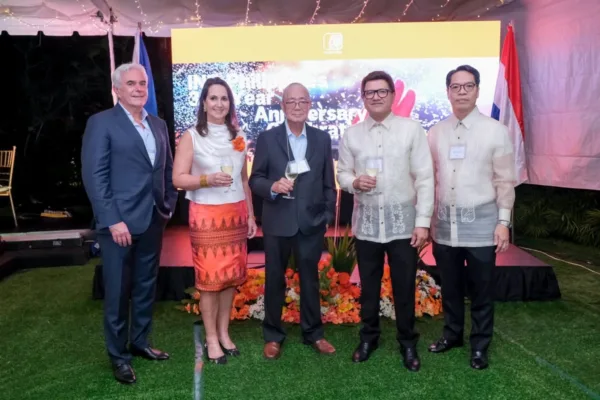The Bangko Sentral ng Pilipinas (BSP) announced that the Philippines and Singapore are now intensifying their cooperation to integrate their respective payment systems.

IMAGE CREDIT: https://asianbankingandfinance.net/
During a courtesy visit to BSP Governor Eli Remolona Jr. at the Philippine Central Bank’s headquarters in Manila, Constance See Sin Yuan, Ambassador Designate of Singapore to the Philippines, expressed her commitment to help strengthen ties between the BSP and the Monetary Authority of Singapore (MAS).
BSP Governor Remolona, for his part, affirmed the Philippines’ commitment to do the same. In a press statement, the BSP chief was also quoted as saying, “Aside from strengthening ties, we also discussed our common vision of further linking our countries’ payment systems.”
Enhancing international cross-border payments
In November 2021, an improved FinTech Cooperation Agreement (FCA) was signed between the BSP and the MAS to make it easier for the Philippines and Singapore to exchange interoperable payments.
This improved agreement expands on the earlier 2017 agreement by the BSP and the MAS to increase the scale of their relationship and collaboration in the fintech industry.
Furthermore, the agreement supports the Association of Southeast Asian Nations (ASEAN)’s objective of achieving regional payments integration by 2025 and is consistent with G20 initiatives to remove current frictions in international cross-border payments.
In a related development, Vietnam has also announced its intention to join ASEAN’s expansion of cross-border payments.
In the just-concluded 10th ASEAN Finance Ministers and Central Bank Governors’ Meeting in Indonesia, the State Bank of Vietnam (SBV) has formally joined the regional payment connectivity project, bringing the total number of central banks participating in the regional payment connectivity effort to six.
The signing of the addendum pages to the Memorandum of Understanding (MOU) on cooperation in regional payment connectivity by the SBV was witnessed by the BSP in addition to the already-existing participants Bank Indonesia, Bank Negara Malaysia, the Monetary Authority of Singapore, and the Bank of Thailand.
The MOU on regional payment connection was signed in Bali by the five central banks in November last year, just before the G20 Leaders’ Summit. By creating faster, less expensive, more transparent, and inclusive cross-border payments, the effort aims to increase and improve collaboration on payment connections.
The regional payment connectivity aims to increase inter-country payments’ ease, affordability, and convenience so that people and businesses can easily conduct business within the ASEAN. Through this collaboration, the ASEAN region’s post-pandemic economic initiatives, such as the promotion of tourism and other service sectors, are intended to be supported further.
The ability of ASEAN member nations to enhance commerce and remittances within the area through cross-border payments will help increase financial inclusion and considerably progress the ASEAN economic community overall.








